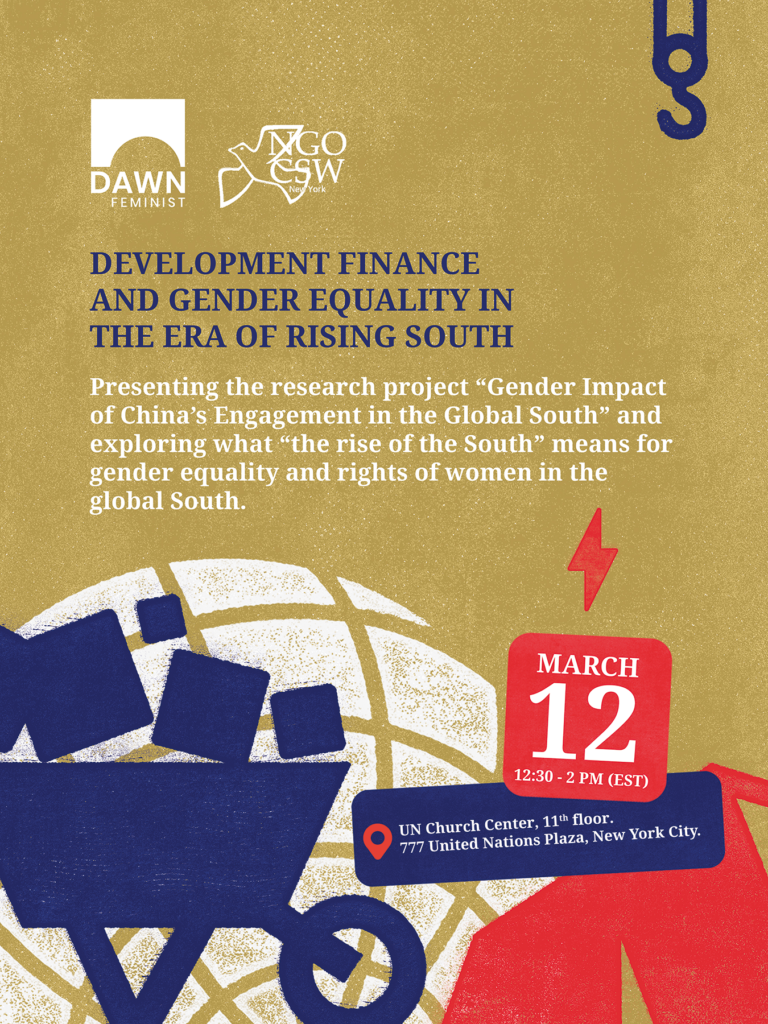Based on DAWN’s two years of empirical research, this panel at CSW68 brought researchers and activists from the global South to share their research findings and insights on the “Gender Impact of China’s Engagement in the Global South” and discuss how the Southern countries and communities interact in the process.
Together, they discussed what “the rise of the South” means for gender equality and women’s rights in the global South and how we can reimagine a South-South relationship and build a meaningful transnational feminist dialogue.
The event took place on March 12th, at the UN Church Center in New York City as a part of the NGO CSW Forum.








Researchers Annita Montoute (The University of the West Indies, Trinidad and Tobago), Diana Castro (Latinoamérica Sustentable, Ecuador), Govind Kelkar (GenDev CRI, India), Laura Trajber Waisbich (University of Oxford, UK/ASUL, Brazi), Li Yingtao (Beijing Foreign Studies University, China) and Zhang Chuanhong (China Agricultural University, China) discussed the main finding of the case studies from the project, shedding light on the gender impact of China’s global engagement via The Belt and Road Initiative, BRICS, and more.
“All these studies put the women’s agencies at the centre rather than seeing them merely as passive victims or vulnerable groups. Gender equality and women’s development are achievable goals and should be put high on the agenda in China’s development cooperation, with appropriate operational guidelines and adequate financial resources. More importantly, these case studies suggest that recipient countries, as active agents, are responsible for promoting their own gender agenda in development cooperation projects executed with China and any other development partners. Only in this way does reimagining a South-South relationship and a meaningful transnational feminist dialogue become possible”, says the panel moderator, DAWN’s executive committee member, feminist activist and researcher Cai Yiping.

